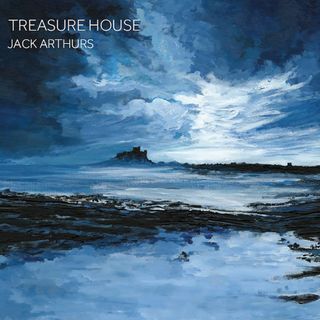A triumvirate of female talent hogs the latest folky headlines, each member sure to hasten the feeling of springtime.
Come Home (Egg Boy) is the latest offering from Marie-Claire Berreen & Her Husbands, as she calls her Midlands-based playmates, and it’s a thing of considerable elegance. The follow-up to 2012’s Box And A Ribbon, the album arrives on a sea breeze, as gulls and ocean sounds usher in the delicate, acoustic and beautifully harmonised title song. Songs such as Fury Of The Storm are redolent of dramatic weather, stunning countryside and precious wildlife, illustrated with contemporary instrumentation that lends immediacy and mainstream potential. Berreen’s striking vocals sit gracefully in a thoroughly accomplished set that’s played and recorded with meticulous care. But perhaps best of all, with its hypnotic riff, is the admirably-titled The Owls Are Not What They Seem.

Kelly Oliver is a swiftly-rising name on the folk scene. Her 2014 debut This Land was a statement of intent that boasted a guest appearance by the formidable fiddler Dave Swarbrick, and her new release Bedlam (Folkstock) further strengthens her case. It’s an enchanting showcase for the Londoner’s cultivated voice and a penchant for some Irish heritage inherited from her paternal grandmother, notably on the single Miles To Tralee.

Emma McGrath recorded and self-released the single Sit With Me at the age of just 15, when she also won trade body the PRS Foundation’s inaugural Lynsey de Paul Women In Music prize for female songwriters. The remarkably mature performance of a haunting song makes a nonsense of her tender years, and the achievement is all the greater in that it was produced by Lauren Deakin Davies, a veritable old stager by comparison at 20. Now we keenly anticipate McGrath’s next EP.

But the ladies don’t have it all their own way this month. Jack Arthurs’ Treasure House is out on the ever-interesting label Bad Elephant, and it proves there can still great potency in the simple vocal and acoustic guitar configuration, when the songs have broad enough shoulders. Its 10 tracks, including the driving Change Your Mind and more reflective Feel Your Pain, put Arthurs’ voice front and centre of a strumming setting.

To end with a giant of the format, Bert Jansch’s 1978 album Avocet was the much-missed troubadour’s own favourite of his recordings, and makes a welcome, remastered reappearance on Earth Recordings. Recorded in Copenhagen, its focal point is the episodic and enchanting 18-minute title track that opens the work. Throughout, Jansch weaves his familiar nimble-figured magic on both guitar and piano, accompanied by former Pentangle confederate Danny Thompson’s weighty double bass and haunting violin figures from the late Martin Jenkins. Each track is named for a bird, Lapwing a brief but lovely piano sketch, while Bittern has something of a prog jazz ambience, experimental but still tranquil.


